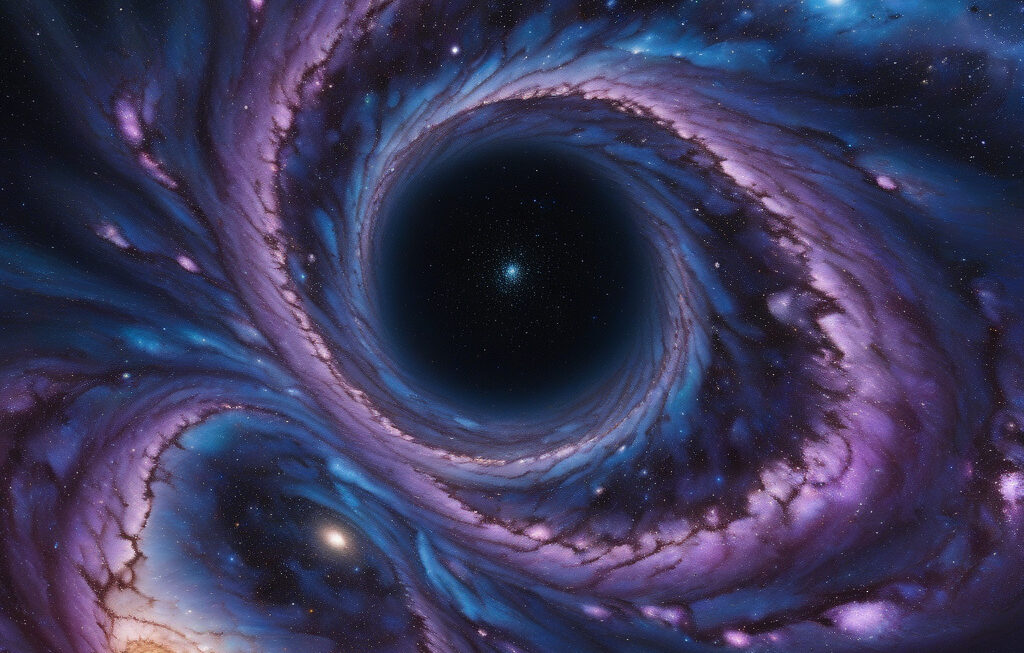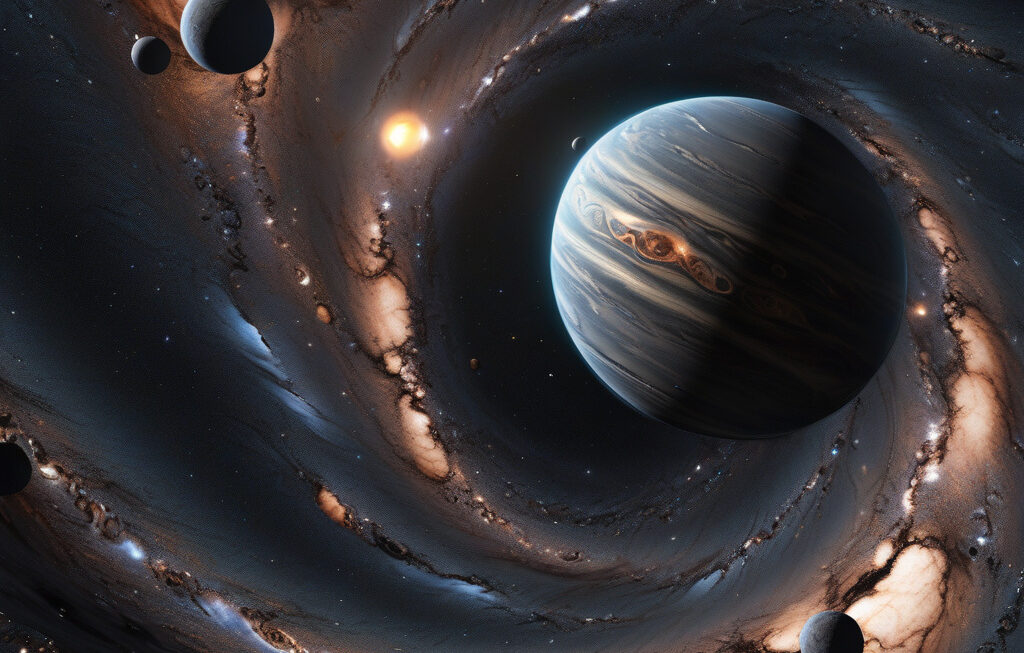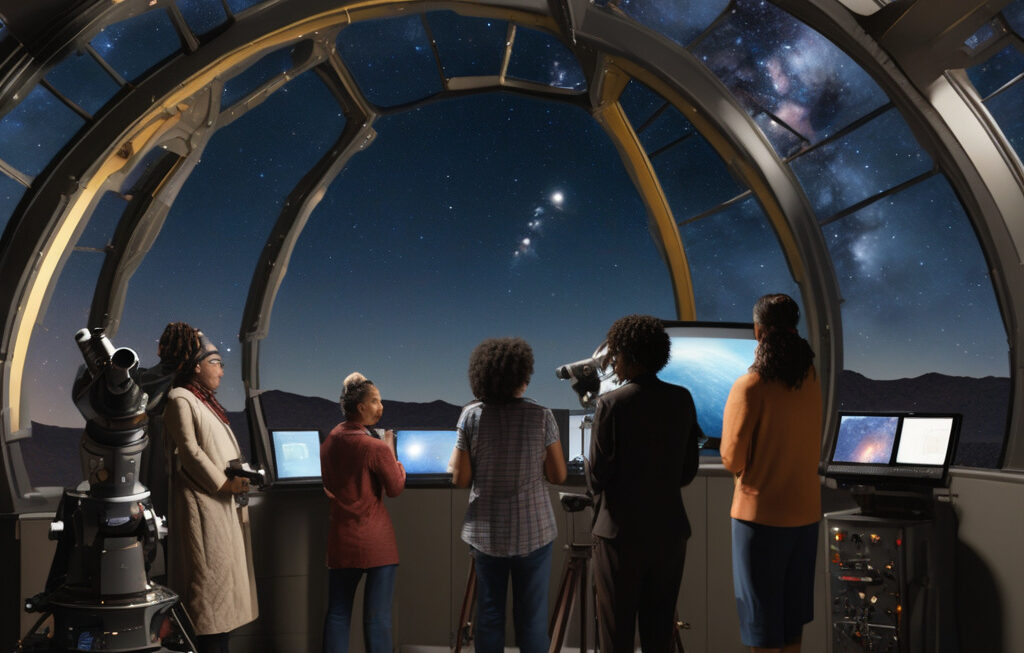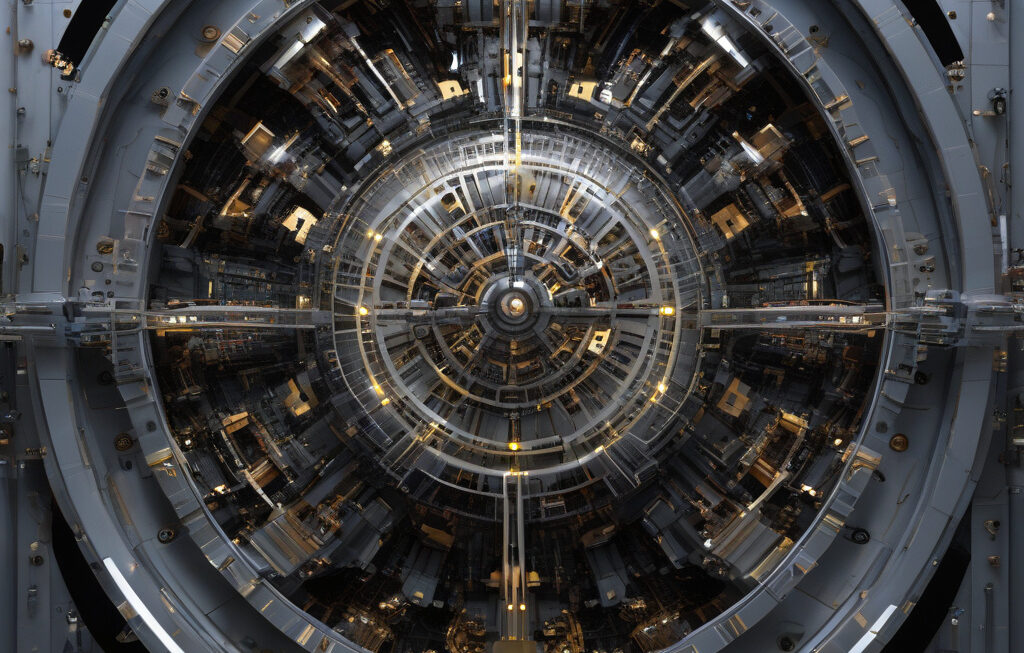Dark Matter: Flowing Like Cosmic Superfluid and Forming Vortex Lines Inside Galaxies It may sound unbelievable, but new research suggests that instead of being featureless, dark matter may flow like a cosmic superfluid, creating vortex lines within galaxies. This groundbreaking study challenges conventional wisdom about the nature of dark matter and opens up a new […]
Mysterious glow from Milky Way’s center could prove dark matter exists
Mysterious Glow from Milky Way’s Center Could Prove Dark Matter Exists A team of scientists from Johns Hopkins University has shed new light on a mysterious glow emanating from the center of the Milky Way galaxy. This intriguing discovery has sparked excitement in the scientific community as it could potentially provide concrete evidence for the […]
Dark matter might leave a telltale ‘fingerprint’ on light, scientists say
Dark Matter: Shedding Light on its Potential ‘Fingerprint’ Dark matter may not be invisible after all. The mysterious substance makes up roughly 27% of the universe, yet its elusive nature has perplexed scientists for decades. However, recent research suggests that dark matter might not be as impenetrable as once thought. In fact, scientists believe that […]
World’s most sensitive dark matter detector achieves billionfold drop in radon
World’s most sensitive dark matter detector achieves billionfold drop in radon Scientists working with one of the world’s most sensitive dark matter detectors say they have achieved a remarkable milestone in their quest to unlock the secrets of the universe. The detector, located deep underground to shield it from cosmic rays and other interference, has […]
Powerful magnetars mute axion signal, making dark matter more elusive than ever
Powerful Magnetars Mute Axion Signal, Making Dark Matter More Elusive Than Ever Dark matter, the enigmatic cosmic ghost, is everywhere, but remains unseen. Scientists believe it outweighs ordinary matter by approximately six to one, yet its presence is only inferred through gravitational effects on galaxies and stars. Despite numerous efforts to detect dark matter directly, […]
What we still don’t know: 10 new puzzles challenging modern science
What we still don’t know: 10 new puzzles challenging modern science Science has a knack for giving us answers, but sometimes its best trick is leaving us with more questions. Despite the tremendous progress made in various scientific fields, there are still mysteries that continue to baffle researchers and ignite curiosity across the globe. From […]
Dark matter could turn exoplanets into tiny black holes, shocking study reveals
Dark Matter Could Turn Exoplanets into Tiny Black Holes, Shocking Study Reveals A study suggests that exoplanets could be used to search for dark matter — the elusive substance that makes up approximately 85% of the universe’s mass. According to researchers at the University of Illinois Urbana-Champaign, dark matter could accumulate within the cores of […]
Astronomers combine 32 cosmic signals in bold hunt for dark matter’s axions
Astronomers Combine 32 Cosmic Signals in Bold Hunt for Dark Matter’s Axions Dark matter has remained one of the biggest riddles in modern physics. Astronomers know it makes up about 27% of the universe, yet its elusive nature continues to perplex even the brightest minds in the field. The search for dark matter has led […]
Neutrinos just ghosted dark matter in the hunt for their tiny mass, study reveals
Neutrinos: The Ghosts of the Particle World Revealed in a Surprising Study Neutrinos are among the strangest known particles, so lightweight that trillions pass through your body every second without you even noticing. These elusive particles have once again taken the spotlight in the world of physics, this time in a groundbreaking study that has […]
New nuclear clock tech may detect dark matter 10 trillion times weaker than gravity
New Nuclear Clock Technology: A Breakthrough in Dark Matter Detection A team of German scientists has proposed a new way to detect dark matter and potentially unlock the secrets of the universe. Through the development of nuclear clock technology, the team aims to detect dark matter signals that are a staggering 10 trillion times weaker […]


















